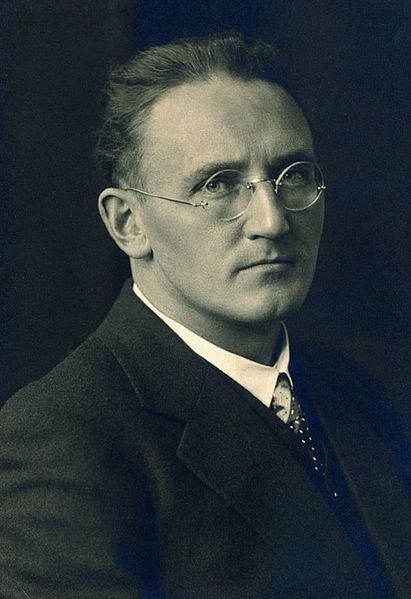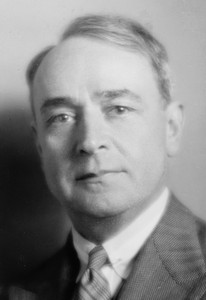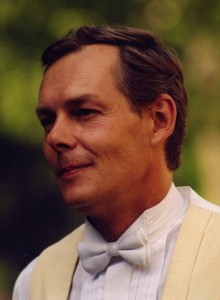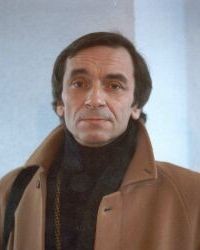
Hermann Scherchen |
Herman Scherchen

The mighty figure of Hermann Scherchen stands in the history of conducting art on a par with such luminaries as Knappertsbusch and Walter, Klemperer and Kleiber. But at the same time, Sherchen occupies a very special place in this series. A musical thinker, he was a passionate experimenter and explorer all his life. For Sherhen, his role as an artist was secondary, as if derived from all his activities as an innovator, tribune and pioneer of new art. Not only and not so much to perform what is already recognized, but to help music pave new paths, to convince listeners of the correctness of these paths, to encourage composers to follow these paths and only then to propagate what has been achieved, to assert it – such was Sherhen’s credo. And he adhered to this credo from the very beginning to the very end of his ebullient and stormy life.
Sherchen as a conductor was self-taught. He began as a violist in the Berlin Bluthner Orchestra (1907-1910), then worked at the Berlin Philharmonic. The active nature of the musician, full of energy and ideas, led him to the conductor’s stand. It first happened in Riga in 1914. Soon the war began. Sherhen was in the army, was taken prisoner and was in our country during the days of the October Revolution. Deeply impressed by what he saw, he returned to his homeland in 1918, where at first he began to conduct working choirs. And then in Berlin, the Schubert Choir performed Russian revolutionary songs for the first time, arranged and with German text by Hermann Scherchen. And so they continue to this day.
Already in these first years of the artist’s activity, his keen interest in contemporary art is evident. He is not content with concert activity, which is gaining ever-increasing proportions. Sherchen founded the New Musical Society in Berlin, publishes the Melos magazine, dedicated to the problems of contemporary music, and teaches at the Higher School of Music. In 1923 he became Furtwängler’s successor in Frankfurt am Main, and in 1928-1933 he directed the orchestra in Königsberg (now Kaliningrad), at the same time being the director of the Music College in Winterthur, which he headed intermittently until 1953. With the coming to power of the Nazis, Scherchen emigrated to Switzerland, where he was at one time the musical director of radio in Zurich and Beromunster. In the post-war decades, he toured all over the world, directed the conducting courses he founded and the experimental electro-acoustic studio in the city of Gravesano. For some time Sherchen led the Vienna Symphony Orchestra.
It is difficult to enumerate the compositions, the first performer of which was Sherhen in his life. And not only a performer, but also a co-author, an inspirer of many composers. Among the dozens of premieres held under his direction are the violin concerto by B. Bartok, orchestral fragments from “Wozzeck” by A. Berg, the opera “Lukull” by P. Dessau and “White Rose” by V. Fortner, “Mother” by A. Haba and ” Nocturne” by A. Honegger, works by composers of all generations – from Hindemith, Roussel, Schoenberg, Malipiero, Egk and Hartmann to Nono, Boulez, Penderecki, Maderna and other representatives of modern avant-garde.
Sherchen was often reproached for being illegible, for trying to propagate everything new, including that which did not go beyond the scope of the experiment. Indeed, not all of what was performed under his direction subsequently won the rights of citizenship on the concert stage. But Sherchen did not pretend to be. A rare desire for everything new, readiness to help any search, to take part in them, the desire to find in them a rational, necessary thing has always distinguished the conductor, making him especially loved and close to the musical youth.
At the same time, Sherchen was undoubtedly a man of advanced ideas. He had a deep interest in the revolutionary composers of the West and in young Soviet music. This interest was manifested in the fact that Sherkhen was one of the first performers in the West of a number of works by our composers – Prokofiev, Shostakovich, Veprik, Myaskovsky, Shekhter and others. The artist visited the USSR twice and also included works by Soviet authors in his tour program. In 1927, having arrived in the USSR for the first time, Sherhen performed Myaskovsky’s Seventh Symphony, which became the culmination of his tour. “The performance of Myaskovsky’s symphony turned out to be a real revelation – with such force and with such persuasiveness it was presented by the conductor, who proved with his first performance in Moscow that he is a wonderful interpreter of the works of the new style,” wrote the critic of the Life of Art magazine. , so to speak, a natural gift for the performance of new music, Scherchen is also no less remarkable performer of classical music, which he proved with a heartfelt performance of the technically and artistically difficult Beethoven-Weingartner fugue.
Sherchen died at the conductor’s post; a few days before his death, he held a concert of the latest French and Polish music in Bordeaux, and then directed the performance of D. F. Malipiero’s opera Orpheida at the Florence Music Festival.
L. Grigoriev, J. Platek





